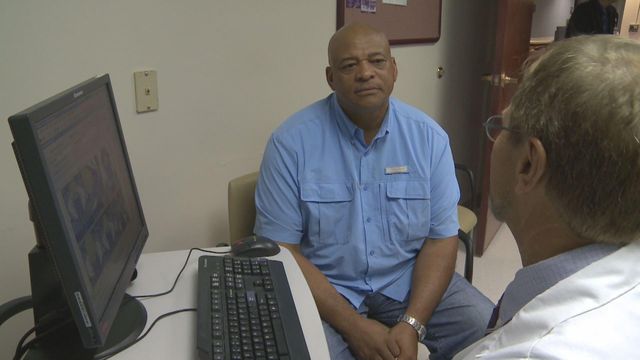Controversial prostate screening still helps some patients
It was a year ago that a government panel recommended ending routine blood tests for prostate cancer in men over age 50. They claimed the screening and invasive tests and treatments that follow haven't helped most men live longer. WRAL's health expert, Dr. Allen Mask, looks at who is still arguing for continued screening.
Posted — UpdatedJohn Mitchell, 52, has always believed in regular health checkups.
Five years ago, his doctor only noticed one possible health concern.
“He said, well your PSA number is elevated,” Mitchell said. “And of course, I didn't really know what a PSA number was.”
It led to a biopsy, which confirmed cancer in his prostate.
As an African-American man living in the South, his risk was twice as high as most men.
“I don't think that I would be here today if the screening was not available to me,” Mitchell said.
Dr. Pete Hoffman, a radiation oncologist with Rex Healthcare, said. “We do know that prostate cancer screening has saved lives over the years, and it's especially important in the high risk group. High risk groups also include all men with a strong family history, especially when they have a father or brother diagnosed while less than 60 to 65 years of age.”
Hoffman says not all men should be screened.
“We probably don't need to screen people who have lots of medical issues that may be more life threatening than prostate cancer,” he said. “And over the age of 75, depending on that man's health.”
Mitchell chose surgery to remove the prostate and radiation to kill remaining cancer cells. For him, he says, knowledge is power.
“If you have prostate cancer and you don't catch it, the results are not good,” he said.
• Credits
Copyright 2024 by Capitol Broadcasting Company. All rights reserved. This material may not be published, broadcast, rewritten or redistributed.





